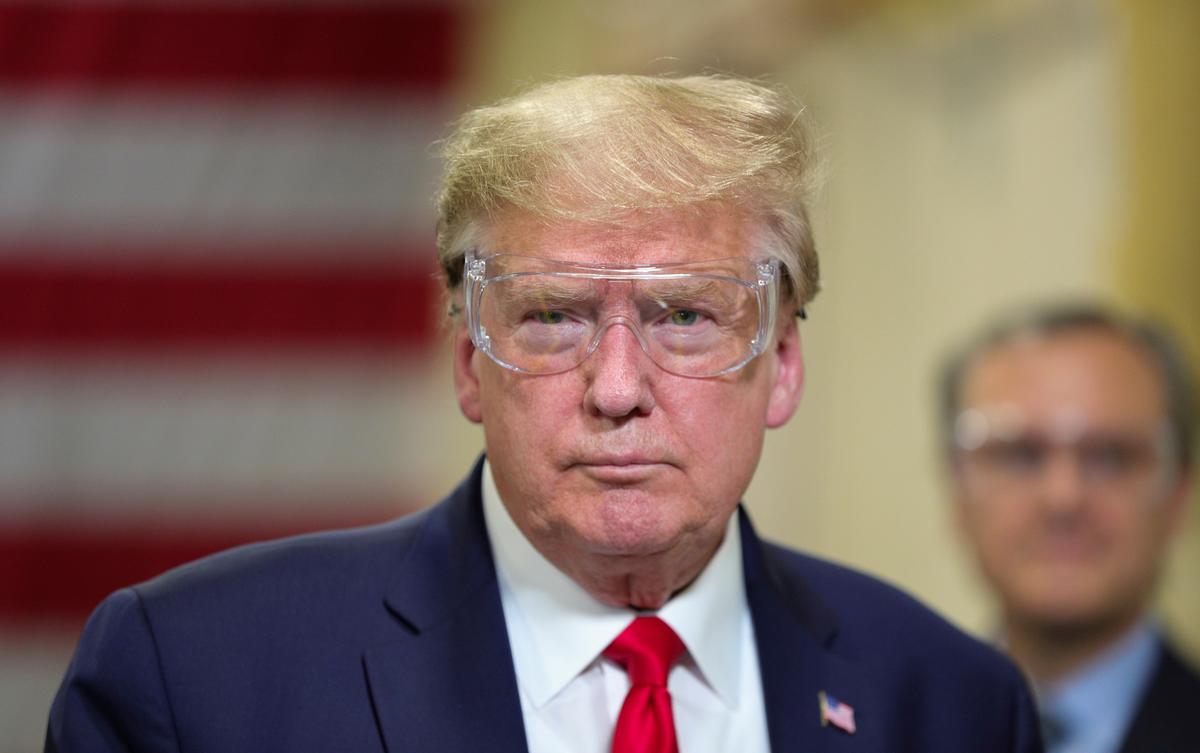WASHINGTON (Reuters) – U.S. lawmakers and officials are crafting proposals to push American companies to move operations or key suppliers out of China that include tax breaks, new rules, and carefully structured subsidies.
FILE PHOTO: U.S. President Donald Trump looks at an assembly line during a tour of Honeywell’s facility manufacturing protective face masks for the coronavirus disease (COVID-19) outbreak in Phoenix, Arizona, U.S., May 5, 2020. REUTERS/Tom Brenner/File Photo
Interviews with a dozen current and former government officials, industry executives and members of Congress show widespread discussions underway – including the idea of a “reshoring fund” originally stocked with $25 billion – to encourage U.S. companies to drastically revamp their relationship with China.
President Donald Trump has long pledged to bring manufacturing back from overseas, but the recent spread of the coronavirus and related concerns about U.S. medical and food supply chains dependency on China are “turbocharging” new enthusiasm for the idea in the White House.
On Thursday, Trump signed an executive order that gave a U.S. overseas investment agency new powers to help manufacturers in the United States. The goal, Trump said, is to “produce everything America needs for ourselves and then export to the world, and that includes medicines.”
But the Trump administration itself remains divided over how best to proceed, and the issue is unlikely to be addressed in the next fiscal stimulus to offset the coronavirus downturn. Congress has begun work on another fiscal stimulus package but it remains unclear when it might pass.
The push

